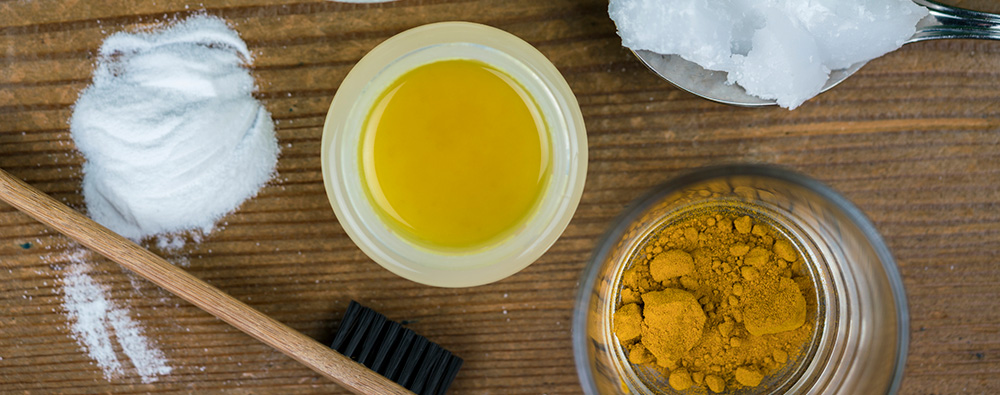Humans have been making toothpaste to help clean their teeth for centuries. The oldest known toothpaste recipe was found on papyrus that dates back to the fourth century AD. It describes how to make an Ancient Egyptian toothpaste. The toothpaste ingredients included salt, mint, dried iris flower, and pepper. The document describes how the powder turns into a paste when it comes into contact with saliva. And this is just one of the many ancient toothpaste recipes scholars have uncovered.
Today, we can purchase commercially manufactured toothpastes at nearly any store. These toothpastes contain some natural (fluoride) and some not so natural (surfactants). It’s these not so natural ingredients that cause some people to look for more homeopathic forms of toothpaste.
And DIY toothpaste may seem like a great alternative. But, are they just as effective as store-bought toothpastes?
Let’s explore.
DIY Toothpaste vs Store-bought Toothpaste
DIY toothpaste recipes vary. Typical ingredients include coconut oil, baking soda, sea salt, and essential oils. With DIY toothpaste, you know exactly what you’re putting into your body because you make the recipes from scratch. You know exactly what you’re be brushing with.
But, does DIY toothpaste work?
Research is very limited. One study1 showed DIY toothpaste can be just as effective at plaque removal as store-bought toothpaste. After all, any toothpaste serves as an abrasive to help remove plaque and food from tooth surfaces. They also help freshen breath.
The problem with DIY toothpaste, however, is that it lacks the benefits of added fluoride. Fluoride is a mineral that’s added to store-bought toothpaste and many public water supplies. It’s proven to help prevent and reduce the instance of tooth decay.
Store-bought toothpastes contain the right amount of fluoride to help fight tooth decay. You can also find store-bought toothpastes that contain other active ingredients used to help with other oral health problems like tooth sensitivity and gingivitis. Additionally, almost all the toothpastes you see in stores have been reviewed and approved by the Food and Drug Administration (FDA).
If you’re interested in making your own toothpaste, consult your dentist. They’ll help you find the right fit for your oral health.
Don’t have a dentist? Create or sign in to your MySmile® account to search for an in-network dentist near you. You can even filter your results by patient endorsements!
1 IOSR Journal of Dental and Medical Science, Comparison Between Homemade Toothpaste and Commercial Toothpaste in Plaque Removal of Children in Udaipur City Rajasthan, 2017.


